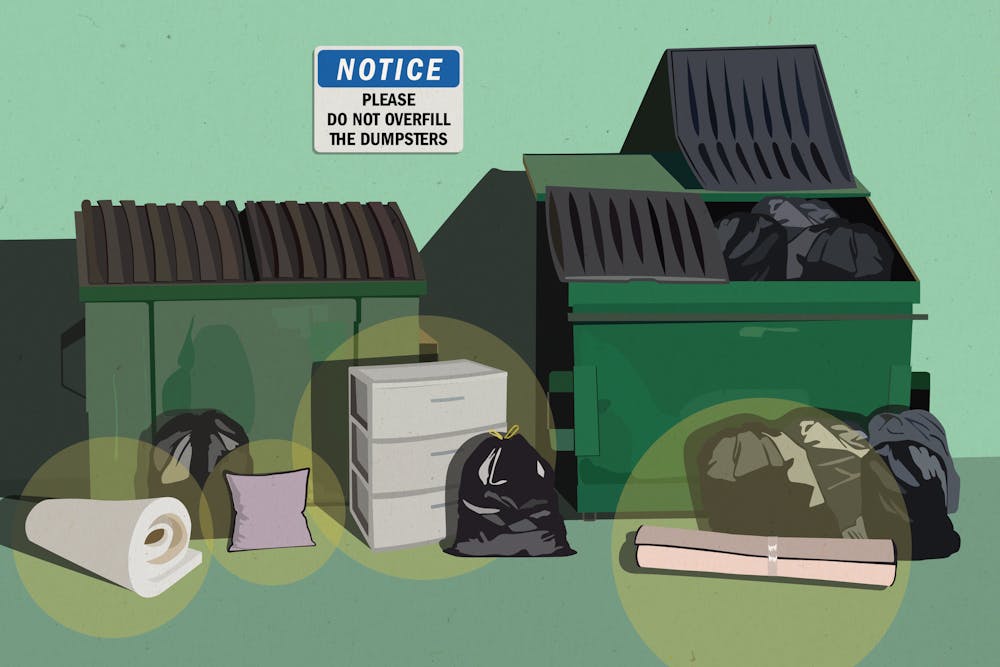UNC sophomore Emma Hedinger said she remembers seeing furniture, futons and other objects being thrown away while moving out of Hinton James Residence Hall last year — items she said seemed perfectly usable.
While some aspects of on-campus living can create opportunities for waste to accumulate, there are ways University departments, student organizations and residents like Hedinger are striving to make residence hall life more sustainable.
Allan Blattner, executive director of Carolina Housing, said the department works closely with UNC’s Office of Waste Reduction and Recycling and the Residence Hall Association to create opportunities to recycle and compost. Throughout the year, students can access recycling cans and compost carts in their residential communities or request to check out personal compost bins.
“It's one of our goals to always be sustainable in all that we do, both in the little simple ways but also those that are a bit more challenging,” he said.
Moving in and moving out create the largest opportunities for students to generate waste, Blattner said. In order to combat this, he said Carolina Housing provides extra opportunities at move-in to recycle cardboard, plastic film and Styrofoam.
During move-out, Carolina Housing hosts the “Don’t Ditch It, Donate It!” program with the OWRR, Carolina Thrift, Carolina Cupboard and TROSA Thrift Store. The program looks to collect and donate usable items that students no longer need. Carolina Housing estimates more than 366 tons of items have been diverted from landfills through the program.
Carolina Thrift, a student-led nonprofit aimed at reducing waste on campus and in the Chapel Hill community, collects donations through “Don’t Ditch It, Donate It!” The group then hosts their annual sale of collected items before the first day of classes every fall. Lacy McKee, a UNC senior and co-director of Carolina Thrift, said the goal is to extend the life cycle of items students would otherwise throw away.
While the nonprofit collects things like clothes, furniture, mirrors and other items in good condition, McKee said one challenge is that students often do not consider what items can be accepted, leaving behind things that cannot be resold.
“A lot of items actually can't be donated to thrift stores and a lot of times we have to take it to the landfill anyway, like pillows and bedding,” McKee said.




